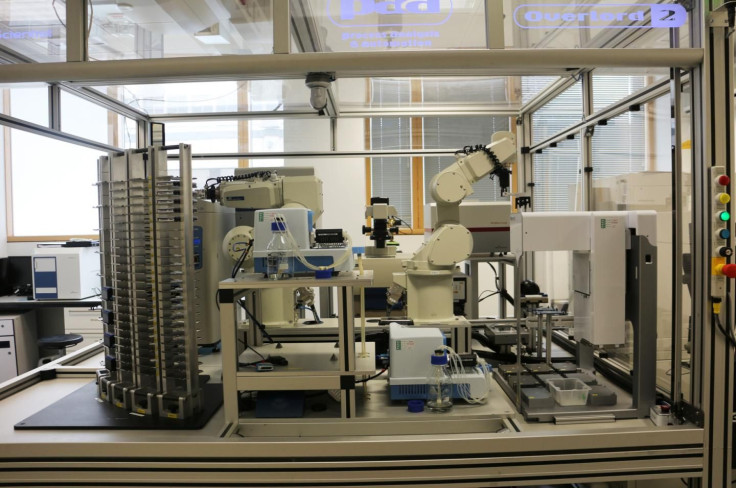Malaria Treatment And Other Cures May Soon Be Found By Artificially Intelligent Robots

Meet Eve, the drug-creating robot that might just save your life. According to a recent study released from her birthplace, Cambridge University in England, the robot is specifically designed to record scientific data and has so far discovered a compound that shows promise in fighting both malaria and cancer.
In 2009, Aberystwyth and Cambridge University researchers designed Adam, the first robot to independently discover new scientific knowledge. Six years later, scientists moved their research up north to the University of Manchester and have added to Adam’s original design in order to create Eve, a truly innovative piece of artificial intelligence. According to the press release, Eve is able to automatically develop and test hypotheses to explain observations, run experiments using laboratory robotics, interpret the results to amend their hypotheses, and then repeat the cycle, automating high-throughput hypothesis-led research. Researchers hope she will revolutionize the pharmaceutical industry by identifying promising new candidates for malaria and other neglected tropical diseases, in both a quick and cost-effective manner.
"Eve exploits its artificial intelligence to learn from early successes in her screens and selects compounds that have a high probability of being active against the chosen drug target," explained Professor Steve Oliver from the Cambridge Systems Biology Centre and the Department of Biochemistry at the University of Cambridge in the press release. Oliver went on to explain how Eve’s “smart screening system” of analyzing drug candidates “has the potential to improve the lives of millions of people worldwide.”
Eve will be used to quickly and efficiently find medicine to treat a number of tropical diseases. In theory, scientists know how to go about creating drugs to treat illnesses such as Chagas disease and African sleeping sickness, but due to the large amount of time and money it costs to discover such compounds, they are largely neglected by major pharmaceutical companies. Chagas disease, known as the kissing bug disease, is reported by the World Health Organization to infect around seven to eight million people. It can cause a sudden brief illness with long lasting effects. African sleeping sickness, according to the Centers for Disease Control and Prevention infects around 10,000 new individuals each year. Hopefully, Eve can change this by drastically cutting the cost needed to develop medicine and get treatment to the millions of people who need it.
According to the study, Eve is able to screen over 10,000 compounds every day, a truly remarkable feat, and according to Oliver, “Eve's discovery could be even more significant than just demonstrating a new approach to drug discovery.”



























